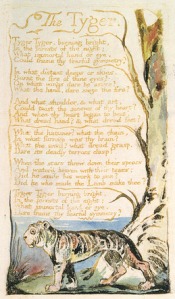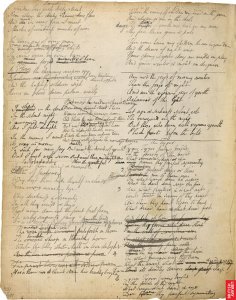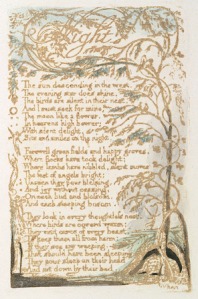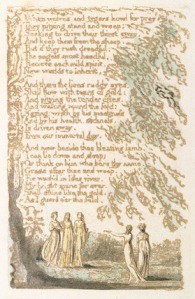Sound the Flute!
Now it’s mute.
Birds delight
Day and Night.
Nightingale
In the dale
Lark in Sky
Merrily
Merrily Merrily to welcome in the Year
Little Boy
Full of joy.
Little Girl
Sweet and small.
Cock does crow
So do you.
Merry voice
Infant noise
Merrily Merrily to welcome in the Year
Little Lamb
Here I am,
Come and lick
My white neck.
Let me pull
Your soft Wool.
Let me kiss
Your soft face.
Merrily Merrily we welcome in the Year
Questions to answer on the poem
What effects are created when the poem is read aloud or sung?
What interests you most about the poem? Why?
What questions might you ask about the poem?
What is the poem about?
What effects does the language create?
What is the effect of the poem’s structure and form?
What are the similarities and differences between other texts?
How do other people interpret this poem? Find sources/links…
What might make a good creative response to the poem?
How might you teach this poem?






